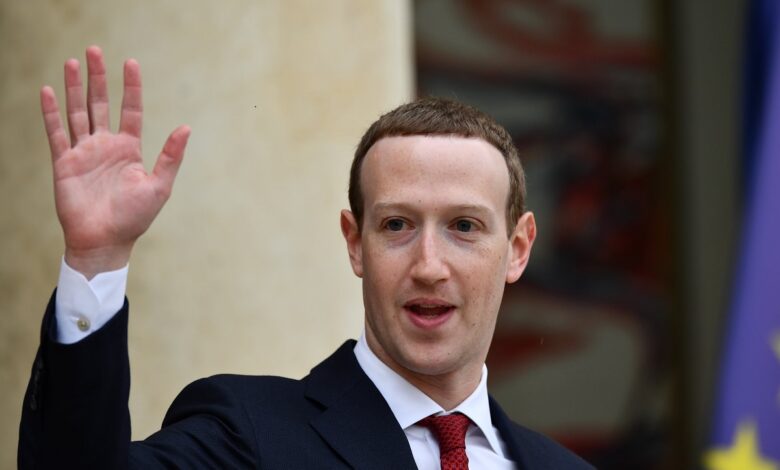Is Mark Zuckerberg a good human being?

In the case of Mark Zuckerberg, the co-founder and CEO of Facebook, these questions become particularly intriguing. On one hand, he has revolutionized the way we connect and communicate with each other on a global scale. On the other hand, his company has faced numerous controversies surrounding privacy breaches and the spread of misinformation. As we delve into this question further, we must examine both sides of the argument to determine whether Zuckerberg is truly a force for good in today’s world.
Mark Zuckerberg and his influence on society:
Mark Zuckerberg, the co-founder and CEO of Facebook, is undoubtedly one of the most influential figures in today’s society. With his creation of a platform that has connected billions of people around the world, Zuckerberg has revolutionized the way we communicate and share information. However, even with this impressive accomplishment, questions arise about whether he is truly a force for good.
On one hand, Zuckerberg’s mission to bring people closer together seems promising. Through Facebook, he has provided a space where individuals can connect with friends and family across borders and cultures. Moreover, his philanthropic efforts highlight a desire to make positive changes in the world. Whether it’s funding medical research or supporting education initiatives through the Chan Zuckerberg Initiative. There is evidence that Zuckerberg intends to use his wealth and influence for noble causes.
Yet, concerns have arisen about privacy breaches on Facebook and its role in promoting fake news during elections. The Cambridge Analytica scandal revealed how user data was misused without consent for political purposes. Additionally, the spread of misinformation on Facebook has led to division and polarization within societies worldwide.
As we ponder whether Mark Zuckerberg is truly a good human being or not. It becomes evident that his impact on society cannot be reduced to a simple answer. While he has undoubtedly revolutionized communication and shown intentions for social change through philanthropy. There remain valid concerns about privacy breaches and misinformation facilitated by his platform.
Early life and the creation of Facebook:
Mark Zuckerberg’s early life laid the foundation for the creation of Facebook, making him a central figure in the digital revolution. Born in 1984 in White Plains, New York, he showed an aptitude for programming from an early age. At just 12 years old, Zuckerberg created a messaging program called Zucknet using Atari BASIC and CompuServe. This early accomplishment foreshadowed his future as a tech mogul.
It was during his Harvard years that Zuckerberg truly made his mark. In 2004, he launched Facebook as a platform exclusively for Harvard students to connect online. The response was overwhelming – within days, thousands of students had joined the site. Sensing its potential beyond Harvard’s walls, Zuckerberg expanded access to other Ivy League schools and then to colleges nationwide. The rapid growth continued unabated until Facebook reached its global dominance today.
Zuckerberg’s ability to create a user-friendly platform that appealed to millions is indicative of both his technological prowess and entrepreneurial drive. His relentlessness in growing Facebook demonstrates not only his business acumen. But also his ambition to connect people worldwide through social networks. As we explore whether Mark Zuckerberg is truly a good human being or not. It becomes obvious that his role in creating one of the most influential companies of our time cannot be ignored or underestimated.
Controversies surrounding privacy and data breaches:
Controversies surrounding privacy and data breaches have become a pressing concern in today’s digital landscape, and Mark Zuckerberg, the co-founder and CEO of Facebook, has not been immune to such challenges. One notorious controversy that rocked the tech industry was the Cambridge Analytica scandal. Where it was revealed that millions of Facebook users’ personal data had been harvested without their consent for political purposes. This incident brought to light the immense power social media platforms hold over users’ privacy rights and raised questions about Zuckerberg’s responsibility as a leader.
Another controversy that further fueled skepticism towards Zuckerberg’s commitment to user privacy was his decision to integrate WhatsApp and Instagram with Facebook, consolidating enormous amounts of personal data under one conglomerate. Critics argue that this move raises concerns about how this vast amount of information will be protected from potential misuse or exploitation. The profound influence that these platforms now wields cannot be ignored. They have become an integral part of people’s lives. While also posing serious threats to their privacy.
As discussions about user privacy intensify, it is crucial to recognize the complex web woven between technology companies like Facebook, their profit-driven models, and accountability for protecting individual privacy rights. While some may view Zuckerberg as a visionary entrepreneur who revolutionized social networking, others question his moral compass regarding user privacy amidst multiple controversies.
Philanthropic efforts and initiatives:
One cannot discuss philanthropic efforts and initiatives without mentioning the name Mark Zuckerberg. While some argue that his acts of charity are merely for public relations, others see a genuine commitment to making the world a better place. One cannot deny the impact of Zuckerberg’s philanthropy through the Chan Zuckerberg Initiative (CZI), which focuses on education, science, and justice reform. By tackling these complex issues head-on, CZI has become an influential force in creating systemic change.
One example of CZI’s work is their commitment to personalized learning in education. Through initiatives like Summit Learning, they advocate for the adoption of technology-driven teaching methods tailored to individual student needs. This approach not only addresses the challenges faced by traditional education systems but also aims to bridge equity gaps by providing equal opportunities for all students. Critics may argue that personalized learning can lead to deeper societal inequalities, but CZI remains steadfast in its belief that every child deserves access to quality education.
Another area where CZI has made significant strides is in medical research. The initiative invests heavily in scientific breakthroughs and funds research projects aimed at combating diseases like cancer and neurodegenerative disorders. By focusing on long-term solutions rather than quick fixes, CZI demonstrates a commitment to solving global health challenges from their root causes.
Examination of personal values and ethics:
One cannot assess whether Mark Zuckerberg is a good human being without examining his personal values and ethics. Personal values, driven by our beliefs and principles, shape our actions and decisions. It is crucial to scrutinize whether the actions of someone align with their stated values. If there is a disconnect between what they claim to believe in and how they behave.
When considering Zuckerberg’s track record at Facebook, questions arise about the company’s commitment to privacy, data protection, and ethical practices. The Cambridge Analytica scandal exposed how user data had been exploited without adequate consent or safeguards. This raises concerns about Zuckerberg’s personal values regarding user privacy and the responsibility of protecting users from harm.
Conclusion:
In conclusion, evaluating Mark Zuckerberg’s overall character is a complex task that requires a nuanced perspective. While he has undoubtedly achieved remarkable success through the creation and growth of Facebook, questions about his intentions and ethical behavior arise. Some argue that Zuckerberg’s relentless pursuit of profit at any cost demonstrates a lack of empathy and morality. The controversies surrounding user privacy breaches and political influence on the platform further raise concerns about his commitment to social responsibility.




